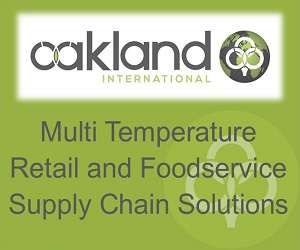As the COVID-19 outbreak continues, urgent measures are needed to address the impact on essential goods transport and passenger transport within and among EU Member States.
Critical action includes reducing truck border crossing times, standard driver requirements, and swift financial support to passenger and freight road transport operators on the brink of collapse.
Tackling long queues at borders
Bottlenecks at EU borders have been causing unnecessary delays and interruptions of supply chains. The European Commission’s green lane guidelines announced today set a 15 minute maximum border crossing time for vehicles carrying any type of goods.
IRU General Delegate, Raluca Marian, said:
“We welcome the Commission’s guidelines on green lanes, and the announcement that all freight qualifies to access those green lanes, since all goods being transported by road are essential. We regret, however, that a provision on long border waiting times has been included. We know by experience that maximum 15 mins per truck will continue to result in huge delays and the situation will remain unchanged. There shouldn’t be any systematic checks at borders.”
Coordinated action on driver requirements
Internationally recognised documents are the best option to maintaining much-needed transport flows. Requesting additional forms and/or health certificates from drivers would only hinder supply chains. IRU welcomes the Commission’s recommendation to Member States that drivers of freight vehicles should not be asked to produce any document other than their driving license. We encourage Member States to follow these guidelines. We also ask all Member States to give drivers access to protection equipment and testing facilities, preferably nearby border crossing points.
“It’s encouraging to see governments come together to tackle the COVID-19 pandemic. However, much still remains to be done in terms of concrete and coordinated responses,” said Ms Marian. “For instance, harmonising EU transit rights for non-EU vehicles serving European countries remains a matter of urgency. The support of third country nationals is of vital importance and application of rules should not be made conditional. Adopting any unilateral restrictions without coordination must be avoided at all costs.”
IRU also urges all European stakeholders to show flexibility in their approach to tackling COVID-19, particularly in terms of professional driving requirements. Professional drivers cannot drive if their driving licenses, training certificates or vehicle checks are not up to date. However, as the relevant certification and test centres are closed, drivers cannot obtain the necessary paperwork. The European Commission has a key role to play in promoting Member States tolerance initiatives. It is in the ideal position to provide EU Member States with consistent guidance – and recommend that the validity of professional documents and inspections should be extended during the current COVID-19 pandemic.
Financially supporting passenger and freight transport operating companies
International coach transport and national passenger transport markets have been hit the hardest over recent weeks, with a 100% reduction in tourist services and a 90% reduction in intercity services owing to the COVID-19 outbreak. While passenger travel is expected to pick up slowly once the restrictive measures are lifted, the road passenger transport sector – made of some 360,000 companies and directly employing 2 million people – is close to collapse.
The slowdown of the economy has also affected many types of freight transport. For example, vehicle manufacturers have stopped work and the supply of vehicle parts has also dramatically reduced. Container freight has similarly decreased dramatically following the reduction in inter-continental shipments. This has put road transport operators at serious risk.
Many road freight operations are conducted at low margins by companies without cash reserves. Stopping or massively reducing road freight activities is therefore bringing transport operators to the brink of collapse. Without swift financial support, very few road transporters will remain operational once the restrictive measures have been lifted.
Without swift financial support, very few road transporters will remain operational once the restrictive measures have been lifted. And once the restrictions are lifted, economies in Europe, and beyond, will need road transport operators to resume scaled operations immediately to support economic recovery.
Following the adoption of the European Commission Temporary Framework for State Aid Measures, EU Member States will be in a position to provide financial assistance to support their economies. Passenger and logistics road transport companies, as the lifeblood of trade and daily life, have been particularly negatively affected by the restrictive measures required to curb the spread of COVID-19 and should be given priority support accordingly.
“With every day that passes, the need for swift, decisive action becomes more pressing” said IRU Secretary General Umberto de Pretto. “European challenges require concerted European measures and coordination worldwide. We call on the European Commission and all EU Member States to continue supporting the road transport sector and to coordinate their actions with the UN and other global stakeholders in these unprecedented and challenging times.”











